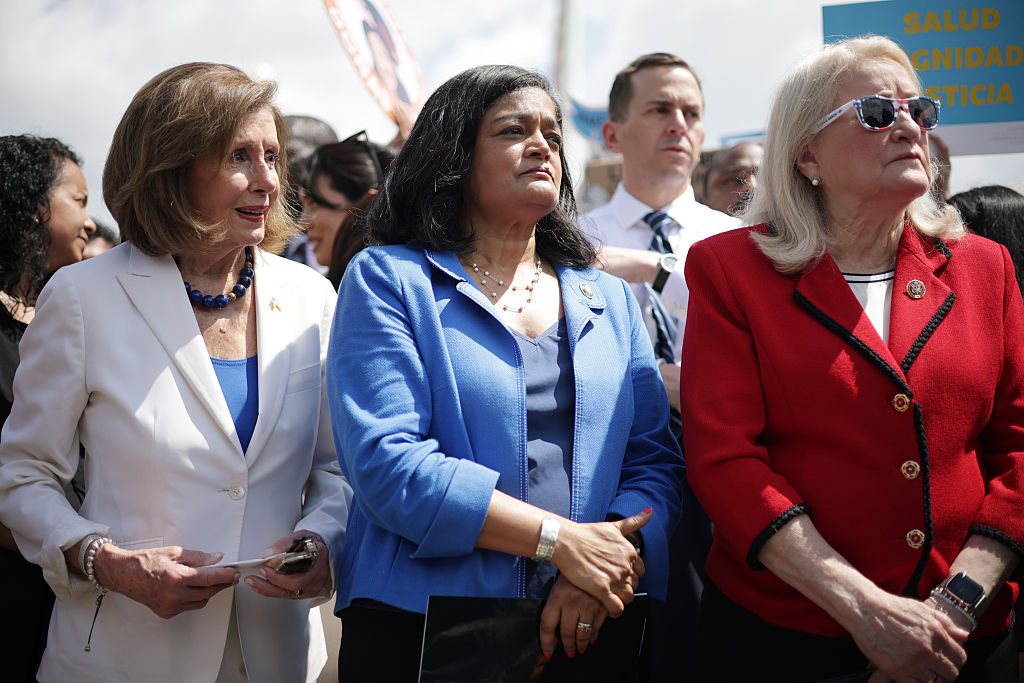Standing amid a throng of fellow protesters outside the Supreme Court Thursday morning, Young Woon Han was worried about his future son or daughter.
Han was born in Korea and is a lawful permanent resident living and working in Columbus, Ohio. His wife, who was also born in Korea, is in the U.S. on a work permit. The couple has discussed having a child. The nine Justices inside the courthouse were taking up a case involving an executive order from President Donald Trump creating exceptions to the Constitutional guarantee that anyone born in the U.S. is a citizen.
[time-brightcove not-tgx=”true”]
The Administration’s effort are “making us nervous, for sure, as an aspirational parent,” Han says. Under Trump’s order, a child born to Han and his wife should still be allowed to become a citizen. But Han is concerned that Trump might not stop there.
“We are afraid that the way things are going, some policy may not affect us now, but it is eventually going to affect all of us,” Han says.
Han was among about 500 people standing outside the Supreme Court Thursday morning as the Justices heard oral arguments in the divisive case. Protestors chanted “Say it loud, say it clear, immigrants are welcome here” and “Sí, se puede.” At one point, the crowd sang Bruce Springsteen’s “Born in the U.S.A.”
Under the order Trump issued on his first day back in office, a child born to parents who lack U.S. citizenship or lawful permanent residency status would no longer be allowed to become a citizen. Multiple district courts moved to temporarily block Trump’s action. The Justices on Thursday were considering the Administration’s request to limit the district court injunctions to the states within each of those court’s jurisdictions.
Stepping up to a microphone in front of the courthouse’s iconic columns, Han told the crowd to imagine two babies born at the same time in two different hospitals in neighboring states. “If there’s no nationwide injunction, one baby gets US citizenship and the other doesn’t. It ain’t right.”
Han held a cardboard sign with the words “Know your rights” and “Wong Kim Ark” written on it. Wong Kim Ark was a Chinese American cook born in San Francisco in the 1870s. In 1896, after a trip to China, immigration officials tried to deny him entry back into the US under the Chinese Exclusion Act, which barred Chinese nationals from migrating to the US at the time. But Wong argued that the 14th Amendment protected his US citizenship because he was born in the US. The stalemate went to the Supreme Court in 1898, with the court confirming in a 6-to-2 decision that Wong was a citizen, setting a precedent that birthright citizenship in the US is universal.
Multiple members of Congress addressed the crowd outside the courthouse. Rep. Delia Ramirez, a Democrat from Illinois, said the case around protecting birthright citizenship nationally is personal for her. “I am a birthright citizen. My mother and my father were undocumented when I was born. And they raised me to fight for justice, to speak truth to power and to see our shared humanity.” Rep. Pramila Jayapal of Washington state also spoke about being one of 19 naturalized U.S. citizens who have served in Congress.
Rep. Nancy Pelosi, a former speaker of the House, stood with protesters in front of the steps of the court, reading aloud the text of the 14th Amendment of the Constitution. The crowd cheered when she read the lines that say no state shall “deprive any person of life, liberty, or property, without due process of law.” Pelosi encouraged people to continue to speak up. “The outside mobilization is very, very important. Know your power.”

